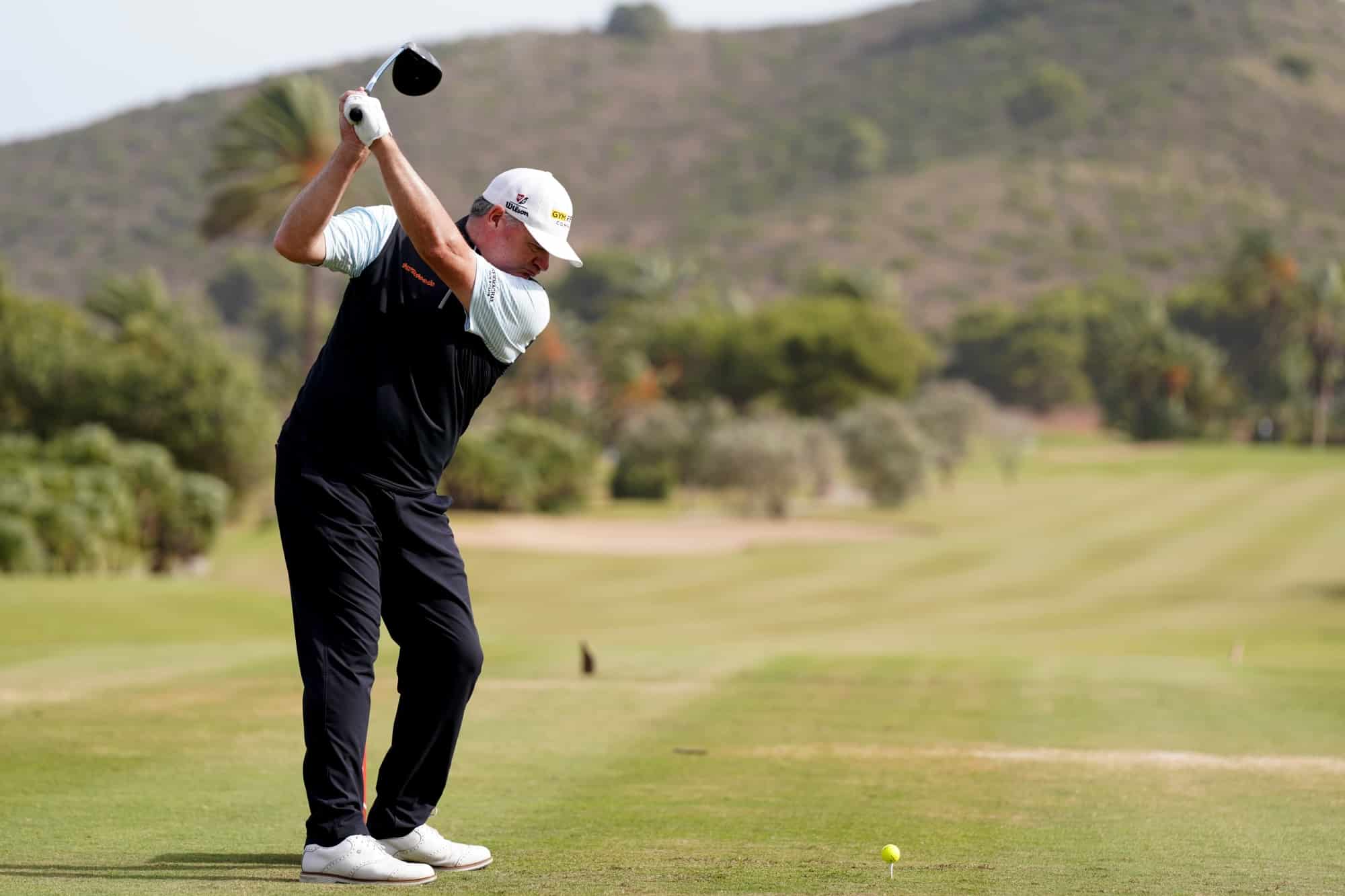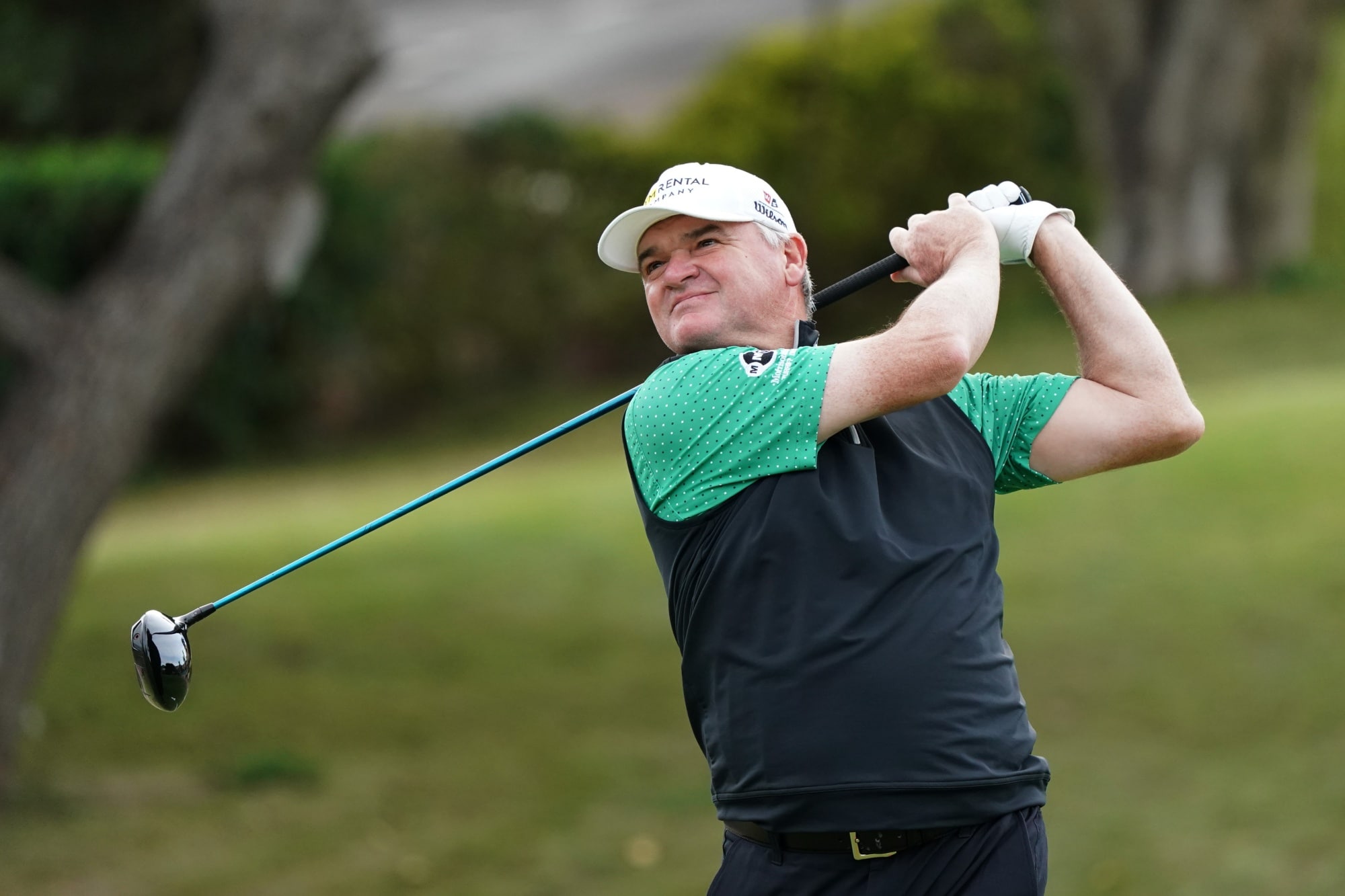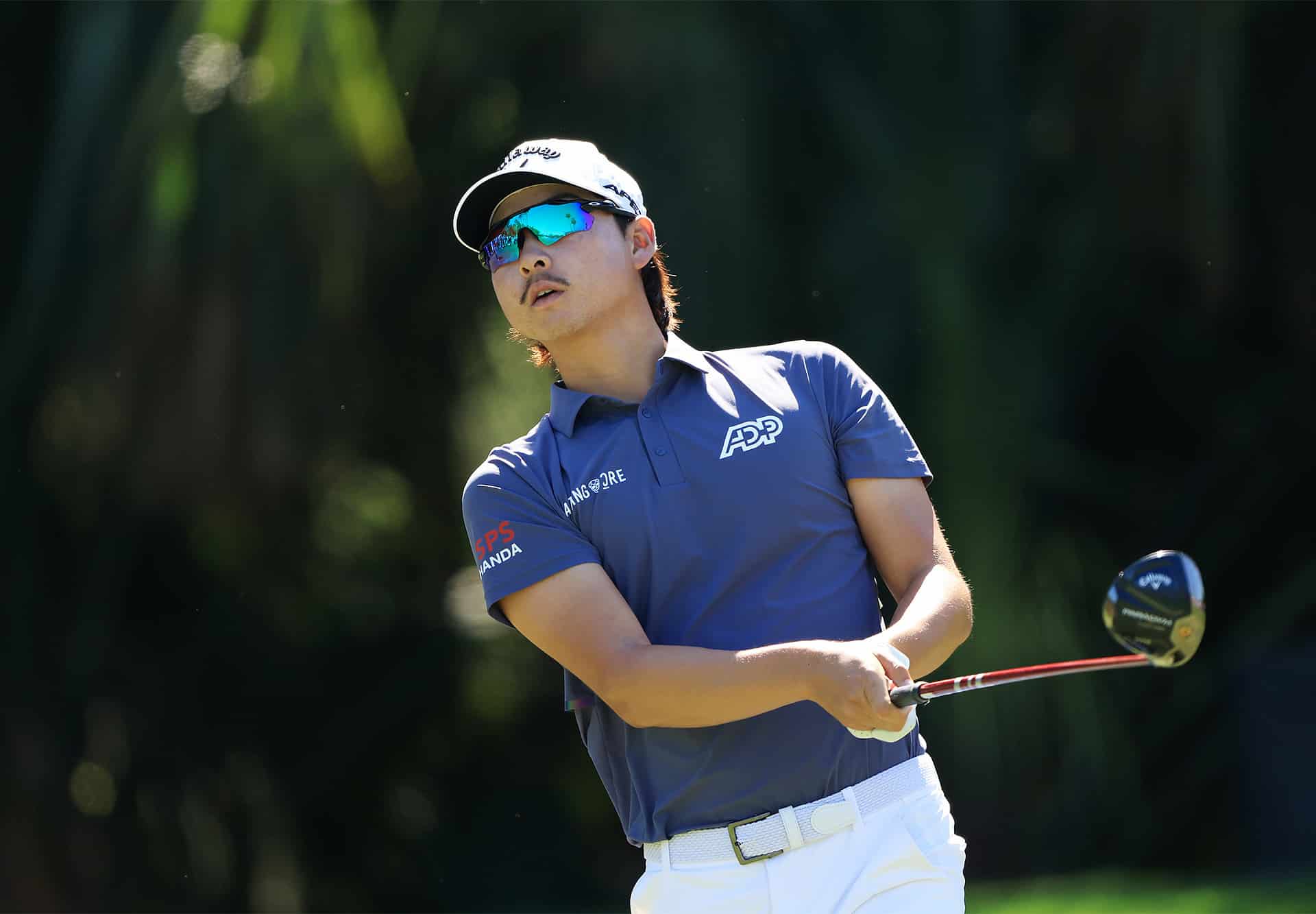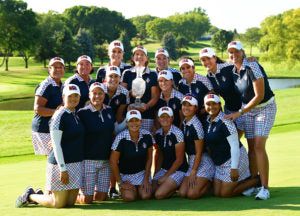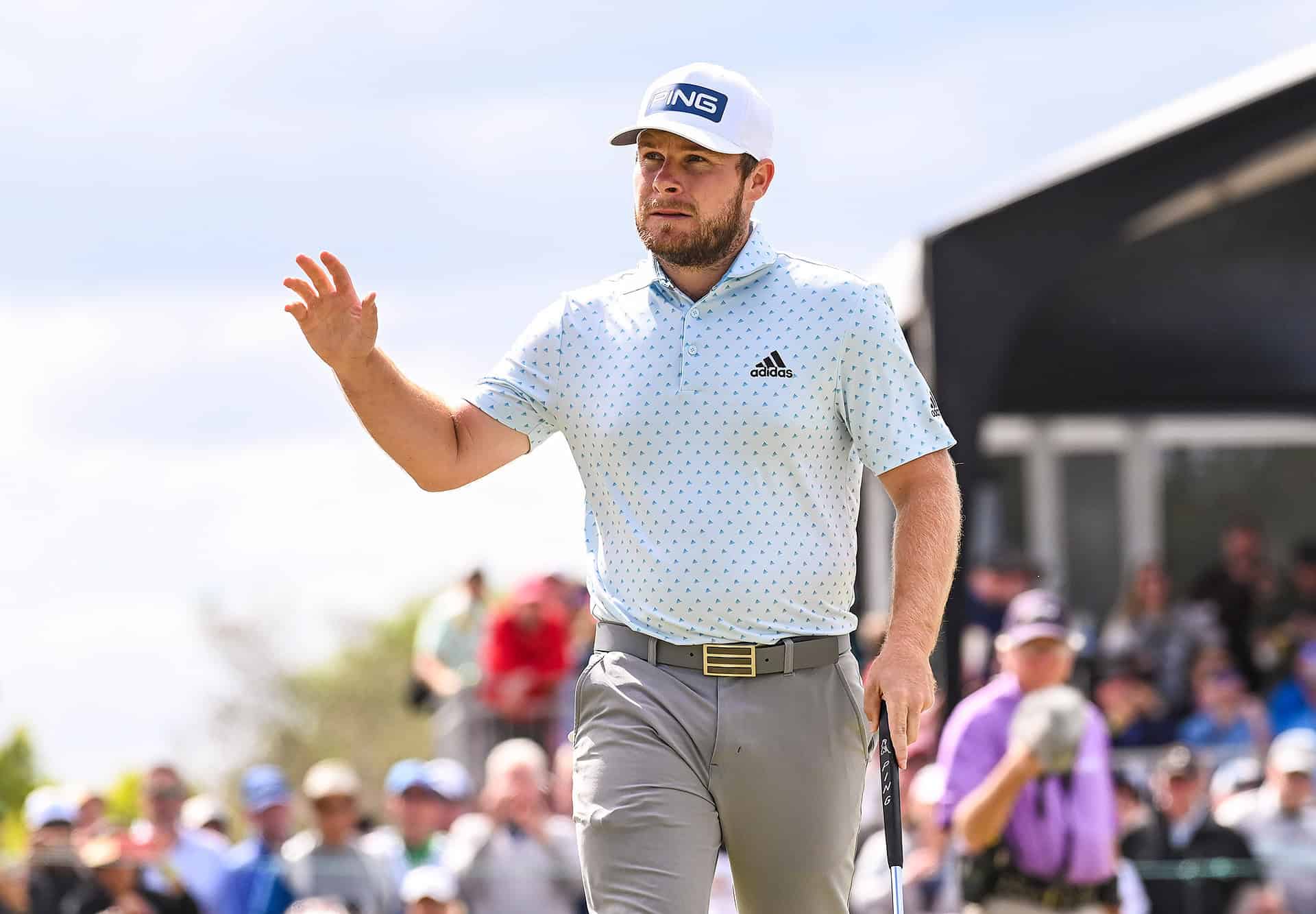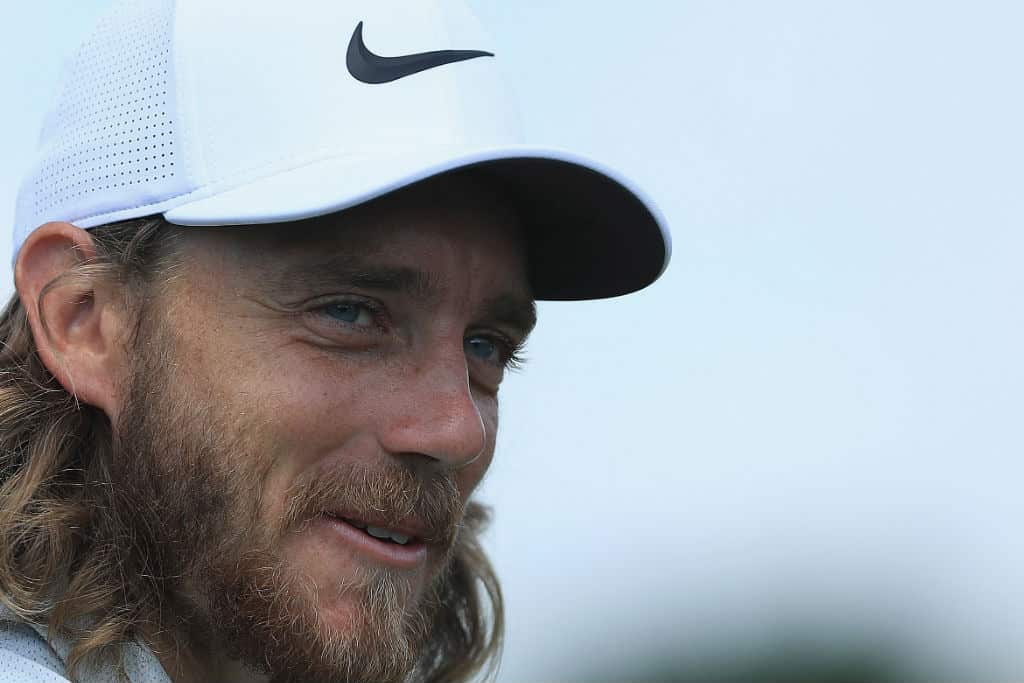
‘Success hasn’t changed him in the slightest’
From sneaking onto Birkdale to hosting a European Tour event at neighbouring Hillside, Tommy Fleetwood has come a long way. But nothing’s changed. Mark Townsend went to meet the people that know him best
It says something about Tommy Fleetwood that, at the age of just 28, he’s hosting this year’s British Masters. Before him we’ve had Ian Poulter, Luke Donald, Lee Westwood and Justin Rose, all seasoned heroes and World No. 1s and major winners – and now Tommy.
With the North West behind the tournament and Fleetwood at the helm this could be the best yet. Everyone loves Fleetwood; the fans, his fellow players and the media alike. Ask the European Tour staff who they like working with and Fleetwood’s name quickly pops up. He’s a rare treat of a person where success, and there’s been plenty of it already, hasn’t changed him in the slightest.
To try and demonstrate this I sought out a collection of players, coaches, and those who’ve known him since before he was a teenager, to share their memories of our Hillside host. In order of appearance:
- Eddie Pepperell (fellow European Tour pro and practically Fleetwood’s twin)
- Neil Harvey (coach of Woodhall Spa’s National Golf Centre Academy and had an eight-year-old Fleetwood in his team in 1999)
- Matt Baldwin (fellow European Tour pro, Fleetwood’s county foursomes partner, and playing on an invite)
- Chris Williams (the secretary at Hillside)
- Graham Walker (worked with Fleetwood in his England Golf amateur days and now his short game coach)
- Chris Paisley (fellow European Tour pro and England and Walker Cup team-mate)
- Simon Dyson (six-time European Tour winner, now a performance coach)
You will also see a lot of mentions of “Thommo” and “Fino”, these are swing coach Alan Thompson and caddie Ian Finnis.
Eddie Pepperell: Tommy and I are three days apart, he’s just older than me. I first met him when I played with him in the Under 13s of the Weetabix and we were actually leading somewhere near Birmingham, it might have been on the second course at the Forest of Arden.
He hit a 7-wood past my driver. He was quite chubby, maybe more puppy fat if I’m being honest, and he hit the ball a mile. And he won. I couldn’t really beat him and I still can’t. He was a good ball striker and he hit it a long way for his age and he did that throughout junior golf. He was very confident and nicely assured.
Neil Harvey: I was the pro at Wike Ridge in Leeds from 1996 to 2002 and we set up a North vs. South Ryder Cup-style match in 1999 which Tommy played in. Tyrrell Hatton played for the South in 2000 and 2001.
We started off with a 12-hole par-3 match against the Leeds & District junior scratch team and we won that. Some of the boys played in Wee Wonders events and Tommy’s dad had entered him into these type of things and we went down to Pedham Place in Kent where we played nine-hole matches of foursomes and fourballs on the first day and 12 singles the day after. It was such an amazing experience to see them flourish away from home.
They were all eight or nine and we had some good players the team was picked from the Wee Wonders events – as well as Tommy we had Scott Campbell, who played for England and Danny Gavins who’s on the European Tour. Stiggy Hodgson and Chris Lloyd were also involved.
I wouldn’t have said he was better than Danny Gavins but he was one of the best. There was a boy from Sheffield, Mikhail Ishaq, who was amazing but he stopped playing somewhere along the way.
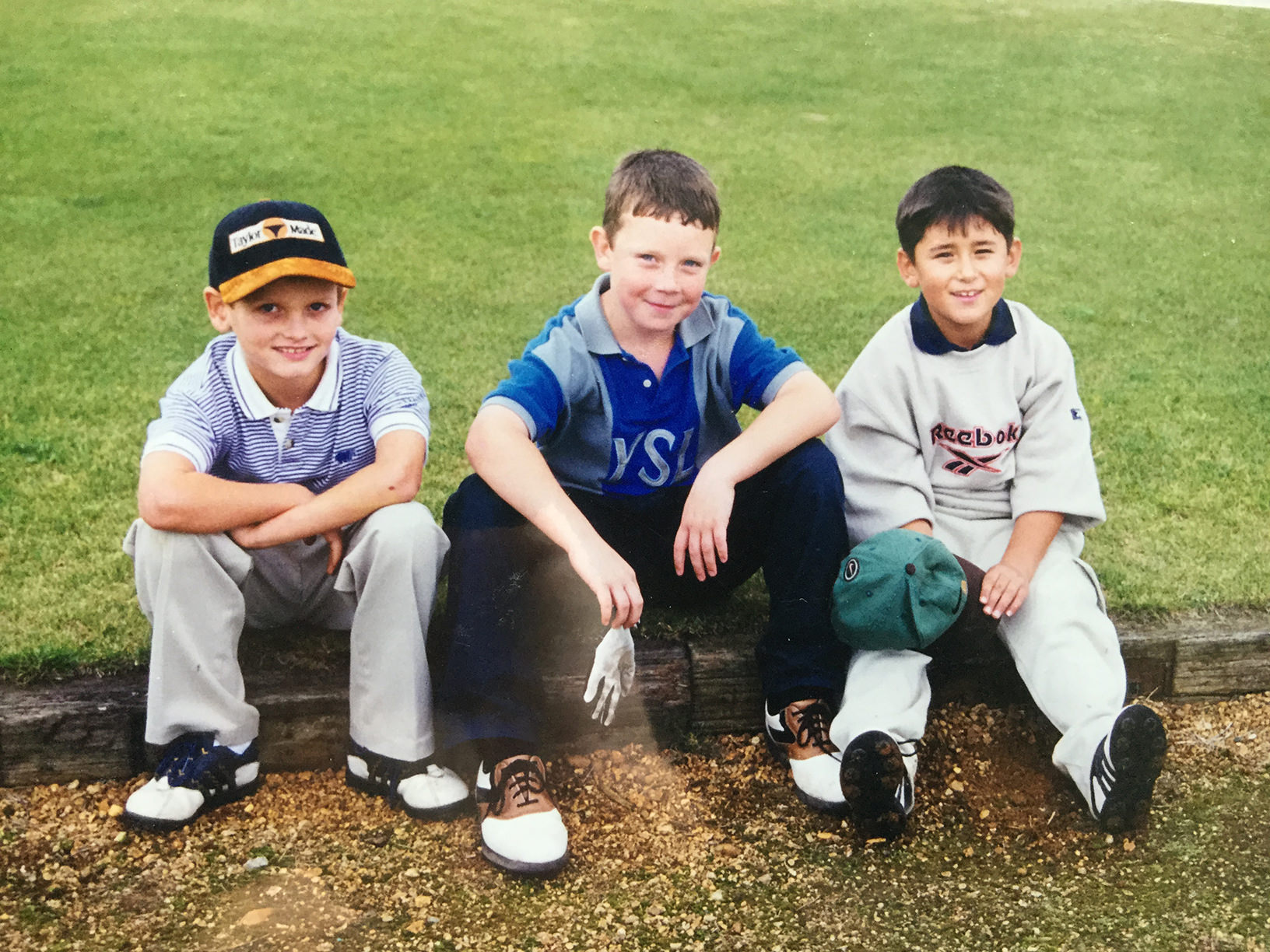
Matt Baldwin: We’re both from Southport so I’ve known Tommy since he was 11. He first played for the Lancashire senior team when he was 13 and, being five years older, he was my foursomes partner for a couple of years.
Obviously he was quite quiet then and he got his head down and got on with it. He was great as he never put me in the shit!
He always seemed stronger than the other kids around him and he always hit it a long way. He struck the ball fantastically well. I think he would say himself that his short game wasn’t on a par with his long game but he had the drive to be the best that he could be.
Chris Williams: I have known him since he was a junior. I’ve been here nearly five years and, just as I started, his then manager approached Hillside to ask if we would allow him to have playing rights and come down and use the facilities and the club granted that.
He’s a really polite guy, a super lad, and it’s great to see a young guy with a lot of talent come through and do what he is doing now. It’s great for Southport. He’s got associations with Formby Hall and he started playing at the Southport municipal. They shouldn’t be forgotten – they are part of his history – but he was asked where he would want to stage it and his number one choice was Hillside.
Graham Walker: I first met Tommy at an England boys’ coaching so he was maybe 14 or 15, Paul Ashwell was running the Under 18s and I was one of the squad coaches. There was a little chip by the side of the 2nd green at Woodhall Spa and a lot of lob wedges were coming out and Tommy hit a little nudge with a 9-iron that went to three feet and I remember thinking that was impressive.
After that he made the full England squad so I would have done some short game and wedge stuff with him there. We did a little session where we would make them feel how their feet work in the swing and I’ve only videoed three or four players with similar characteristics and they’ve all turned out to be a winning tour player. It’s to do with how they manoeuvre their feet and shape the ball and their awareness with the ground.
That little thing stuck with me.
Neil Harvey: I only ever gave him one half-hour lesson when he was aged 10. He was hooking this adult driver and he was really strong, the only person I’ve seen that strong at that age is Robin ‘Tiger’ Williams.
Chris Paisley: We were on the same team that won the Home Internationals at Hillside in 2009. Tommy, as the local lad, had a big following and won all six of his matches. You would always hear about this kid who was meant to be really good and then we’ve kept in touch through the pro ranks.
Later that year we played Walker Cup together at Merion. He was a brilliant junior and amateur, he’d reached the final of the Amateur Championship at 17 so he always had that star quality.
He always seemed older, I was nearly five years years older than him but he seemed more experienced in a lot of ways. He was always very positive, great to be around and genuinely loves playing golf which is the same now.

Eddie Pepperell: We partnered one another once against Scotland. We played Paul Shields and David Law and we won 9&8, thrashed them. They were really good lads and we annihilated them. We never really got partnered for whatever reason, I don’t know why.
Tommy was always going to make it. Of all the golfers who were around if there was one guy who was going to be a professional it was him.
He would be the on-course leader in a team as he has good energy and is a team player and has fun, he never really judges anyone and you get that impression when you play with him which is great. He only really cares what he’s doing, I’ve never felt threatened by Tommy as a fellow competitor which is a really nice characteristic to have.
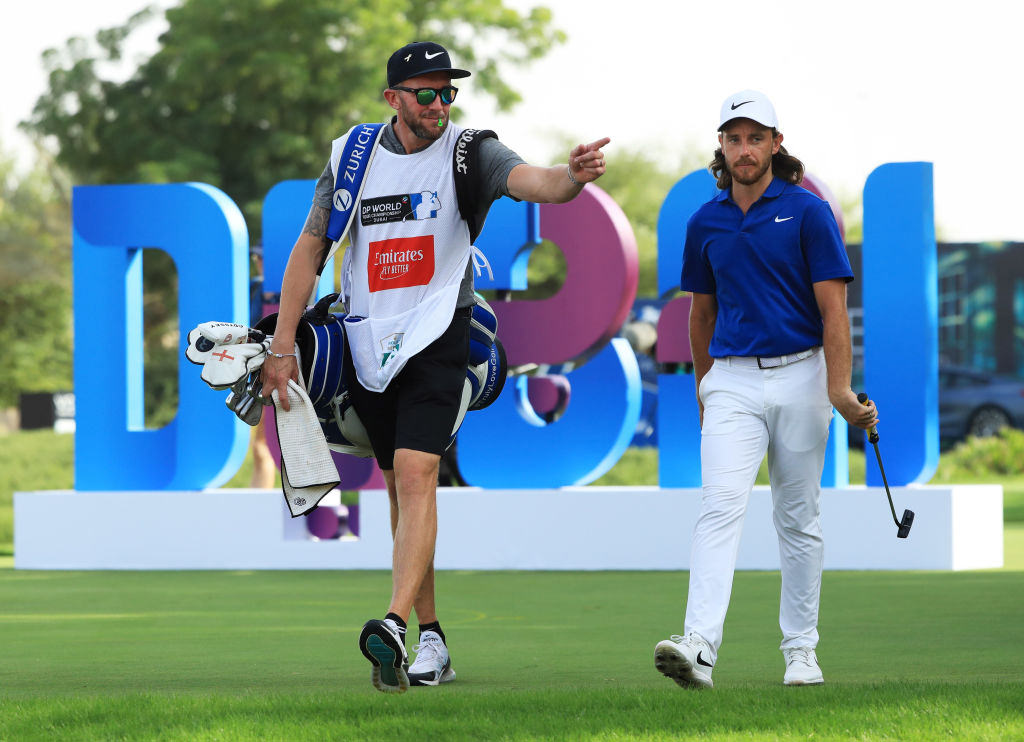
Simon Dyson: You always knew he would be very good but the last few years he’s really come on. The massive change for him was when he went to having Ian Finnis on the bag, and he clearly knows a lot about golf.
It’s one of those where you never know what’s for the best – you spend more time with your caddie than your wife so you have to get on but you want someone who knows a lot about golf. If they don’t know much then you will have to do a lot yourself. If you have got a mate who is a fantastic golfer then it’s a brilliant thing to have.
Tommy’s very popular on tour, he’s just a normal, really nice lad.
Graham Walker: Fino is a superb caddie, if you want his opinion he will give it and it’s always honest and that is another trust part of it.
Chris Paisley: If he ever got too big for his boots then Thommo and Fino would sort him out, not that it would ever happen anyway. The trust he has with those guys, Fino a big influence in his turnaround.
Neil Harvey: What I really liked was Tommy’s dad. He was very enthusiastic but very inclusive of everybody else and he wanted to make sure that Tommy was making friends. There are too many examples of kids being hot-housed and then drop out and Tommy’s dad was great.

Graham Walker: We first hooked up again after he had a chat with Thommo and he said he was thinking about getting someone to do short game and Thommo thought it was a good idea. So we started working together two and a half years ago when he was just outside the top 100 in the world.
He came over on the train to Howden with half a set of clubs, mainly his wedges and a few other clubs, and I picked him up from the station. Then I dropped him off in York where he stayed overnight and he caught the train in the next morning. Tommy’s real, he gets being real.
He enjoys spending time with people and is very people friendly, he tries very hard to be as real as he can which says a lot about him as a person.
Matt Baldwin: I’ve been with Thommo for 20 years now, I had my first lesson with him when I was 13. Thommo’s one in a million, he’s become like another parent to me, he’s just a legend.
He has modernised his teaching along the way but he’s had the same principles and teaches the man and not a method. He does what’s good for you rather than getting everyone doing the same drill regardless of how they swing it which you see a lot of.
Thommo’s cool but he doesn’t know he’s being cool, he’s a very comfortable guy to be around. The Silver Fox.

Graham Walker: Tommy’s got plenty of self-belief and when he gets people around him who believe in him he really feeds off it – so Fino, Phil Kenyon and Thommo and myself and his manager, now wife, Clare – so he’s surrounded by people where he’ll get the right information but he then doesn’t dodge it.
Some players will ask for your opinion and then not do anything about it, he will always confront it but not in a nasty way, he’ll do it in a way to get everyone in the team to help him work on it. He then needs to take the responsibility to work on it and he does that.
Eddie Pepperell: I remember playing a practice round with him at the Scottish Open in 2016 and I could not believe how badly he was driving the ball. After three holes he asked me to carry on as he wanted to be on his own which was absolutely fine – he was so fragile with the driver but within nine months he was having a great year.
He was historically a great driver and he couldn’t keep it on the planet.
Simon Dyson: It takes a very strong mind to get over something like the driving yips. Two other players, Sergio Garcia and Paul Casey, have similar minds in what they got over. I don’t know how bad his driving had got but it was obviously a problem and you have to believe in the process and his mind must be so strong.
The two clubs you hit the most are driver and putter and, if one is off, then it’s hard. Now he’s got it on a piece of string.
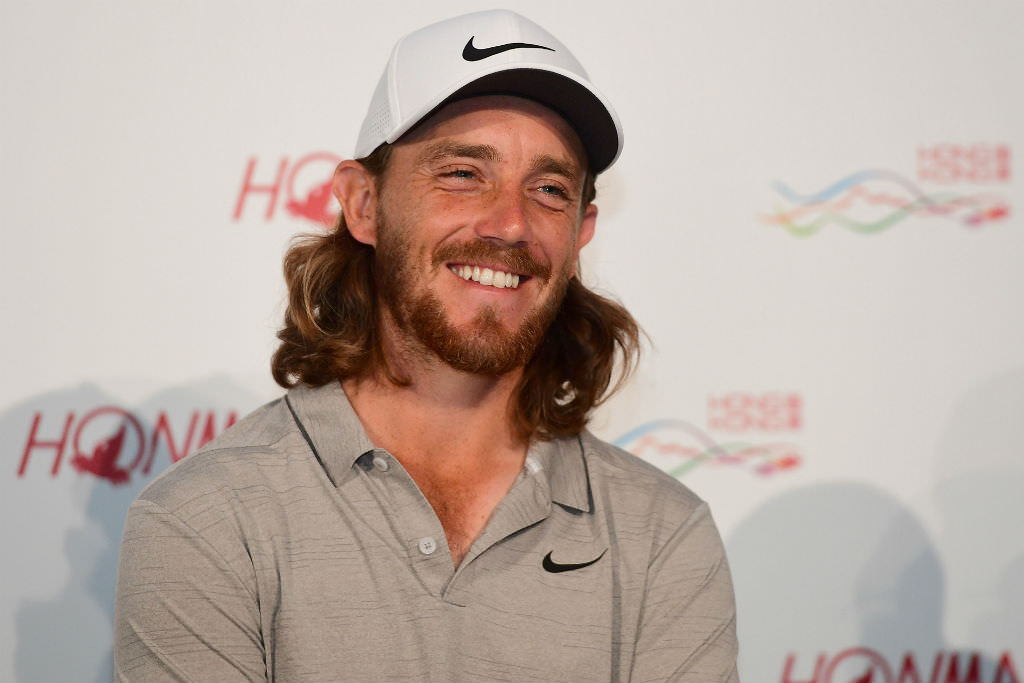
Eddie Pepperell: The coach he was with when his driving went clearly added something as, after going back to Thommo, he then had something else. Otherwise he would have been doing the same things as before.
I know from my own experience that you get lost with every coach but they all have some form of magic so that’s to Tommy’s credit, he’s very smart as he will have identified one or two things that he did like. And that’s how you move forward.
I’m always reminded of an Isaac Newton quote: “If I have seen further than others, it is by standing upon the shoulders of giants.” I think that is exactly it. He’s doing better than he was doing before by taking out what he wants and you could say that about every coach.
Matt Baldwin: I was delighted that Tommy got back with Thommo. I’ve had spells away from him but it always comes down to the same old saying to my parents: “It’s not Thommo.’
He has this way of getting things across. When they got back together Tommy wasn’t in a great place and that’s credit to his work ethic as it’s obviously not just down to Thommo waving a magic wand.

Graham Walker: Just over a year ago we were working on a bunker shot at the Honda Classic – it was a very difficult shot where you had to open up the face, take less sand, and try and spin it up near the hole. We’d only really gone at it that week and then a few holes in he was in a bunker and so I got in really close to have a look and he executed the shot to two feet.
Afterwards I asked why he tried it and he said he would have been more annoyed had he not tried it straightaway and under the gun. That takes a special type of person who wants to do it under pressure.
By Bay Hill he was up to third in the PGA Tour bunker stats which is a massive leap. Our goal this year is to make him world class at the simple stuff.
He’s getting better out of difficult lies. Variety isn’t always from the Spanish hands, it comes from a variety of lies and grasses. I talk about there being 60 basic lies that you can practise from so we talk about how to practise from those and then come up with the variety part.
Eddie Pepperell: I’ve never seen him lose his shit at himself or anyone else other than when he flicked the middle finger at the hole at Augusta which was brilliant. That’s as angry as he gets which is great as most of us break a club or whatever and it will then go.
Chris Paisley: I took a screenshot of that and sent it to him! He must have been having a nightmare on the greens to cause that sort of reaction from him.
He loves his job, a lot of guys are good at golf but they don’t enjoy it. Tommy loves travelling and playing and that comes across.

Graham Walker: Tommy often wants to know what the right choice of shot is for him – not the perfect shot but what works for Tommy. We’ve done this a few times where we’ve tried to predict where the flags were and what shots he would face if he missed the green so we could put together what clubs to play.
At the last nine holes of practice at the Ryder Cup we knew where the flags would be so we would practise from the fairway, rough and bunker lies and he averaged, and I have it in my book – 3.3 feet from fairway, 4.2 from rough and 4.2 from bunkers and I remember saying to him that if he carries on like this you can’t get beaten. Which almost came true.
At times there is an element of predictability of where flags will be – I call it money in the bank by pre-playing shots in practice.
Eddie Pepperell: He’s always been the first person to do something out of our little cohort, I admire him for that as that’s a hard thing to do. I have always been in the shadows and am just following him and he’s always been a leader in that sense.
He still goes about his business the same way as he’s always done, success hasn’t changed him in the slightest. Not like me, I only shop in Waitrose now.
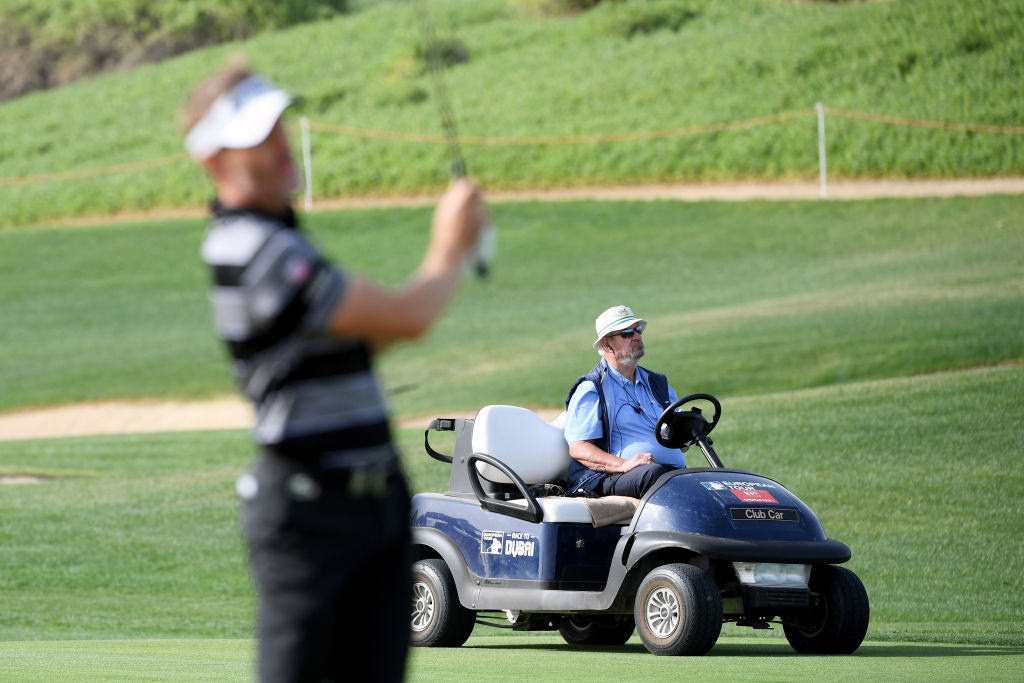
Revealed: What a European Tour player has to do to get fined
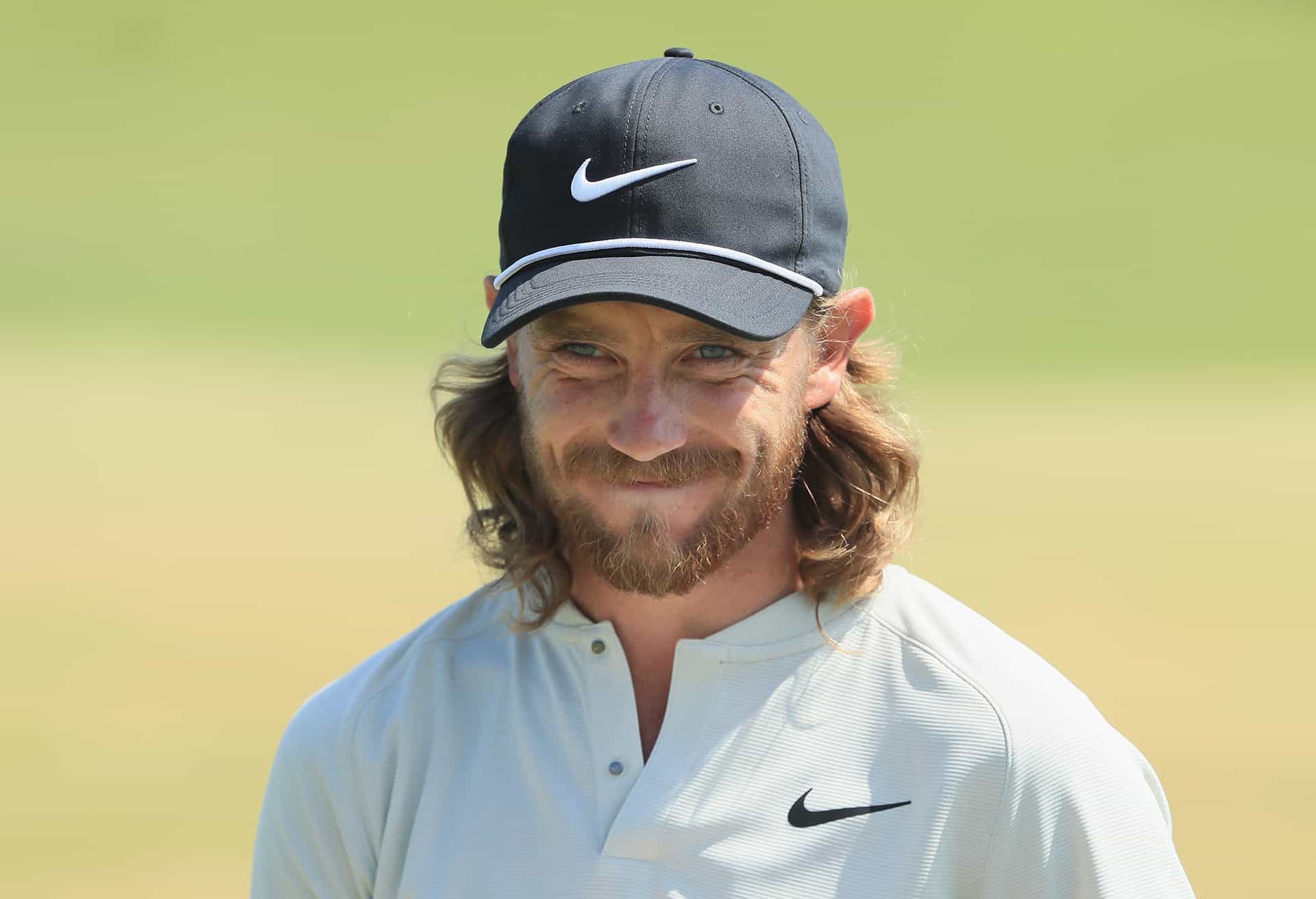
Why do we love Fleetwood? Because you can’t fake being genuine

From the yips to winning the Race to Dubai: The making of a champion
Mark Townsend
Been watching and playing golf since the early 80s and generally still stuck in this period. Huge fan of all things Robert Rock, less so white belts. Handicap of 8, fragile mind and short game



